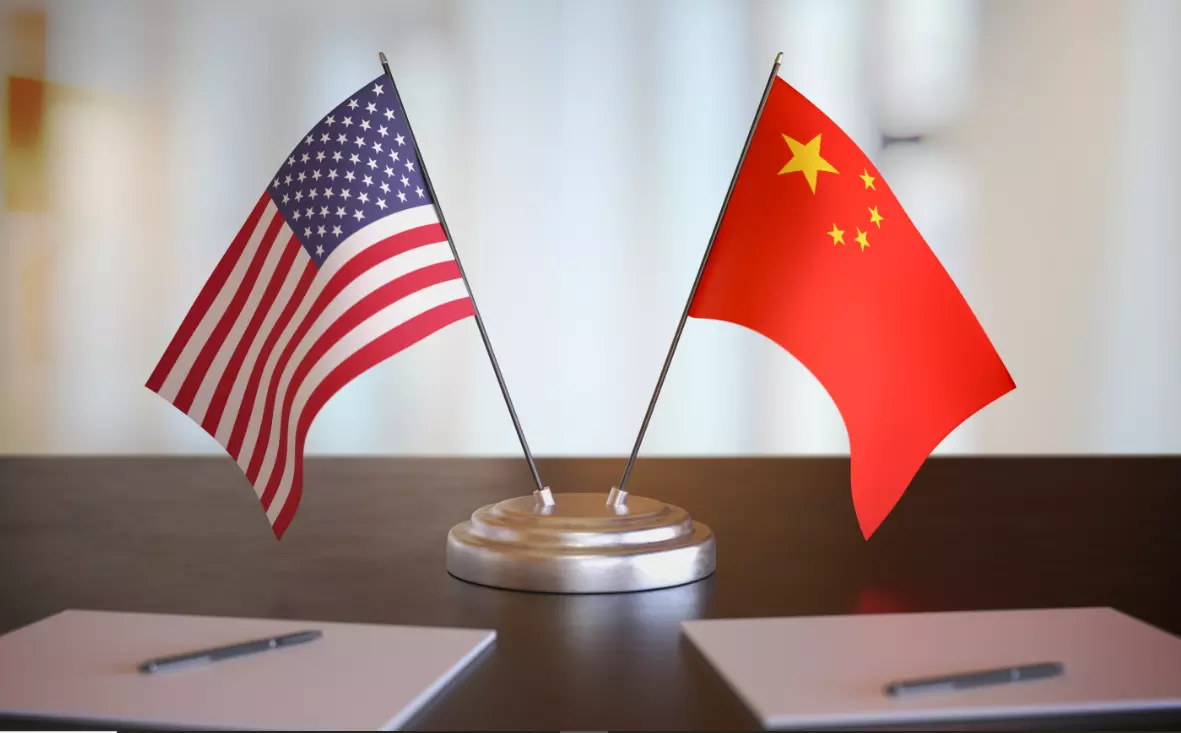Copyright deccanchronicle

The global technology race between the United States and China is rapidly turning into a full-blown Cold War, but make it Wi-Fi. Instead of missiles, they’re hurling TikTok bans, trade restrictions, and AI paranoia like it’s a global tech-themed dodgeball game. It is less about missiles and more about megabytes, a standoff where firewalls replace frontlines and sanctions substitute for soldiers.What began as trade disagreements has now grown into a worldwide struggle for control over technology, digital platforms, and the future of artificial intelligence. The rivalry sometimes feels like two very powerful uncles arguing over who gets to hold the TV remote, except this “remote” is the semiconductor supply chain, and the “TV” is the entire internet.In the past year, both countries have tightened rules to protect their own technology interests. The U.S. government has imposed new export restrictions on advanced chipmaking tools to slow China’s progress in artificial intelligence and defense systems. In response, China limited the export of rare earth minerals like gallium and germanium, critical for chip manufacturing, guarding them as if they were the last pack of Maggi in a college hostel. Experts say this tug of war shows how semiconductors have become the most powerful tools of influence in the modern world, as important as oil once was in the last century. Prisha Sakhare, is an International Baccalaureate student At the same time, apps and social media platforms have entered the political spotlight. TikTok, one of the world’s most popular apps, has become a flashpoint in the digital battlefield. With more than 170 million users in the U.S., its Chinese ownership has sparked strong concerns in Washington about data security and privacy. Ex-President Biden has described Chinese apps as “digital Trojan horses,” while Beijing has accused the U.S. of paranoia and political theater.In April 2024, the Biden administration passed a law requiring ByteDance, TikTok’s parent company, to divest its U.S. operations or face a ban. China, in turn, called the move discriminatory and warned of consequences. What might look like a debate over a social media app is, in truth, a struggle for influence—over who shapes narratives, who controls data, and who defines digital sovereignty. TikTok is no longer just about dance challenges; it’s become a diplomatic one.Technology companies around the world are caught in the crossfire, updating privacy policies faster than students cramming before exams. One day, TikTok is banned; the next, it’s back, but with a user agreement longer than Hamlet’s soliloquy. American giants like Apple and Nvidia, which depend heavily on Chinese manufacturing and markets, are facing fresh challenges.Meanwhile, countries like India and Vietnam are emerging as alternative chip production hubs, hoping to attract global investors seeking stability amid rising uncertainty.According to the International Monetary Fund (IMF), this growing fragmentation could shrink the global economy by up to two percent. Economists warn that divided digital systems and disrupted supply chains may slow innovation and increase costs for businesses and consumers alike. In other words, while superpowers play cyber tug-of-war, the rest of the world is left buffering.This shift is also reshaping global alliances. The U.S. is strengthening cooperation with allies like Japan and South Korea on chip production, while China deepens ties across Asia and Africa to secure vital resources and technology partners. The battleground is no longer Berlin, it is bandwidth.Analysts say the conflict extends far beyond economics; it is about control over digital infrastructure and the invisible flow of information. From semiconductors to smartphone apps, every line of code has become a tool of geopolitical influence. Missiles may stay in their silos, but algorithms are crossing borders in milliseconds, reshaping societies before rules can catch up.The real danger is not one side winning, it is both sides losing sight of what is at stake. A fractured internet, splintered supply chains, and competing tech empires may serve short-term agendas but threaten the long-term promise of the digital age: openness, innovation, and shared progress. In a world increasingly connected, no firewall is high enough to contain the fallout. If world leaders keep treating TikTok and chips like nuclear weapons, they risk triggering a tech war that no one truly knows how to stop.The author, Prisha Sakhare, is an International Baccalaureate student interested in global affairs, technology, and social change.



